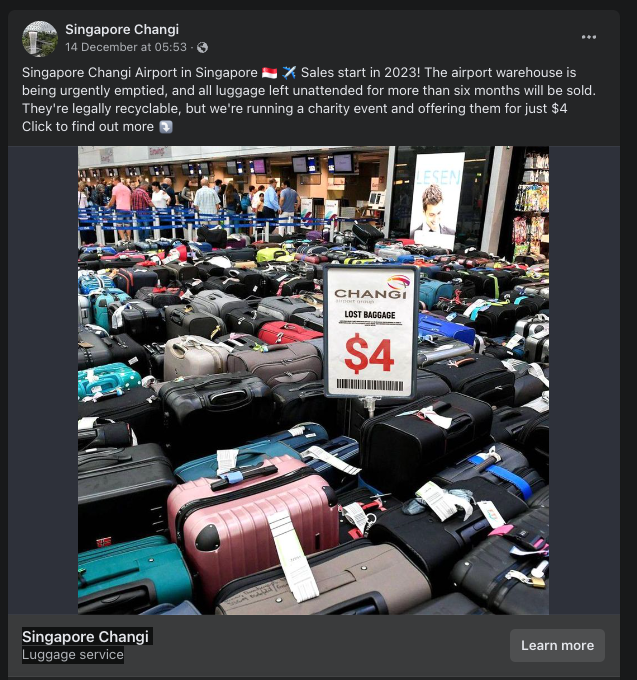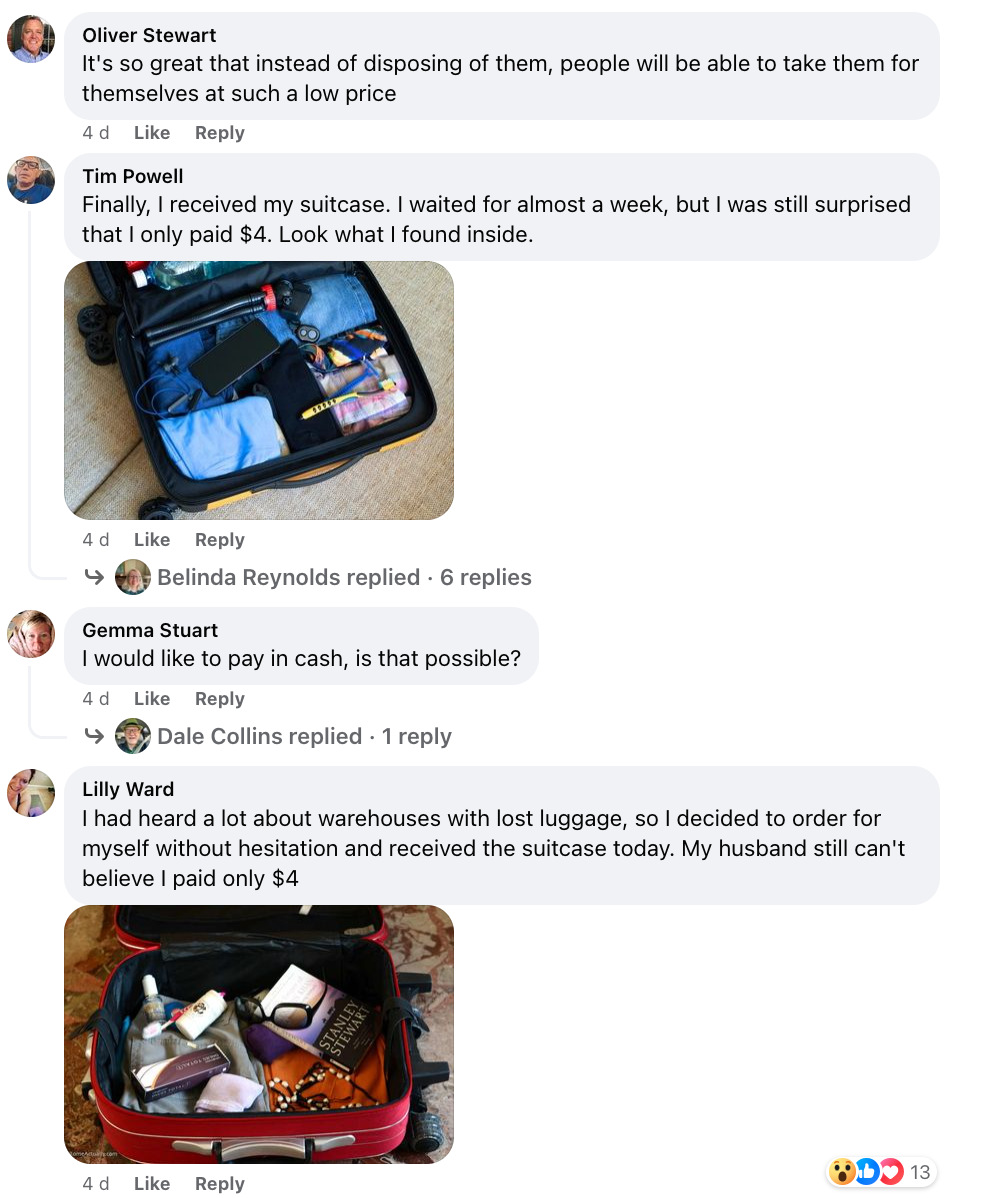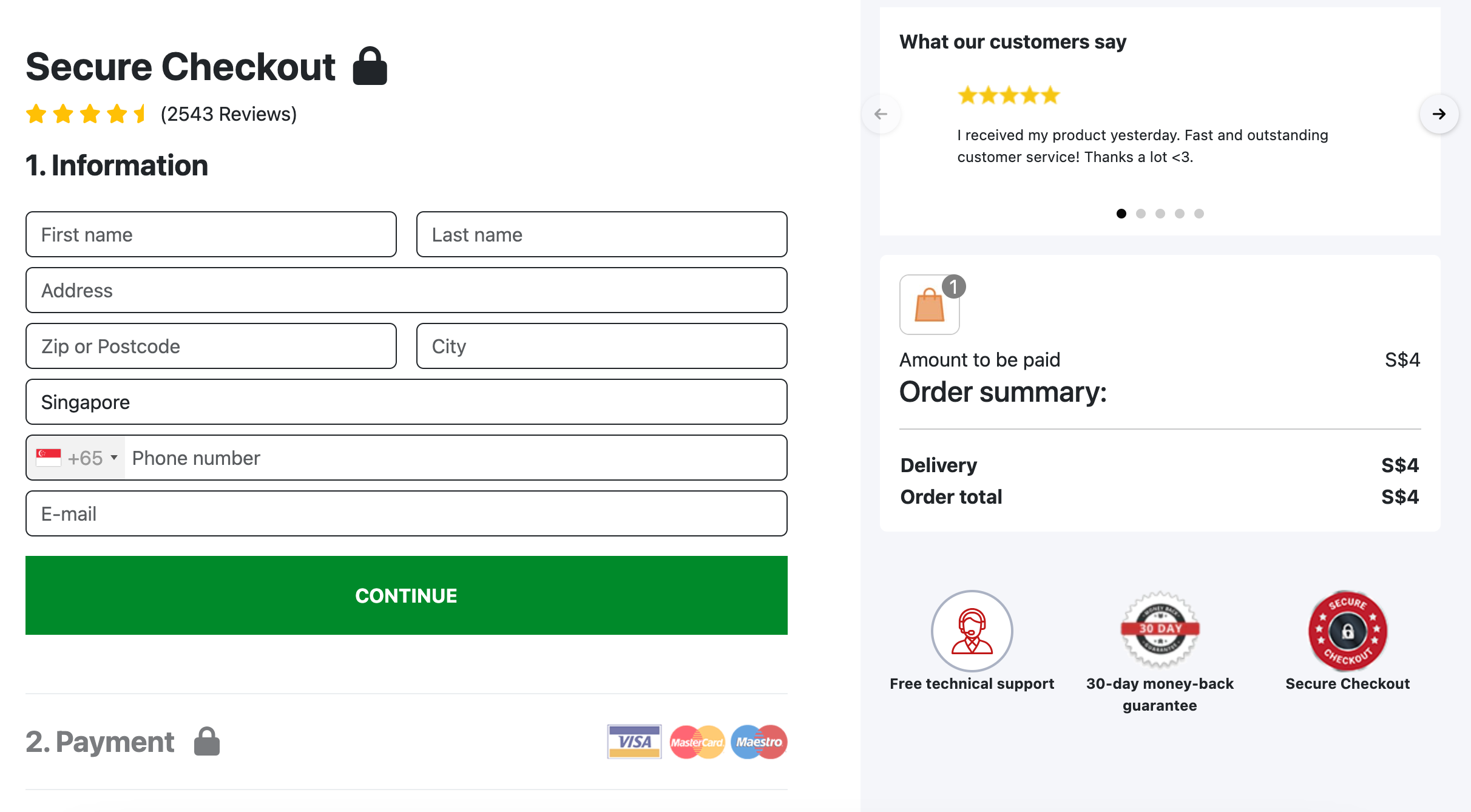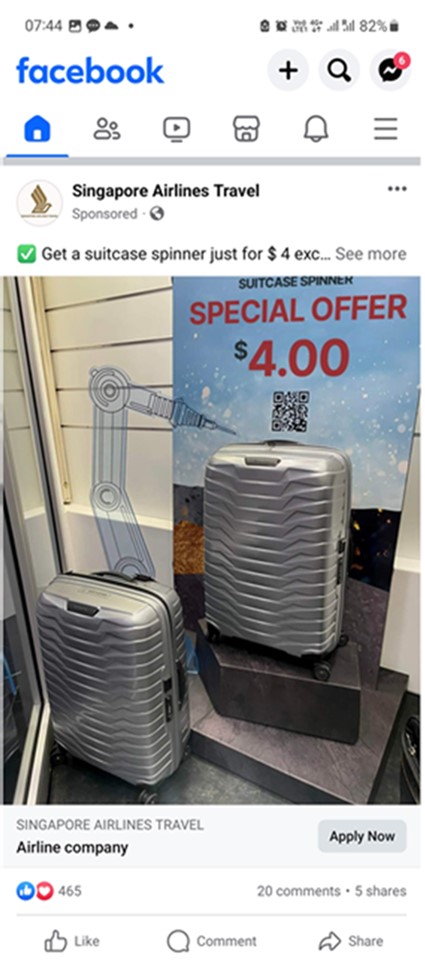What’s the first step you take when you want to check the legitimacy of something and ensure it’s not a scam?
For most of us, the answer would probably involve checking the reviews or comments section related to the subject of our research—whether it’s a place, a product we want to purchase, or any other matter of interest.
However, what if scammers have become so great at their craft that they manipulate the reviews and comments themselves to trick us?
Well, this has recently happened in a phishing scam on Facebook, imitating Changi Airport.
On 7 December 2023, the police issued a warning alerting the public to be cautious of a phishing scam involving Singapore Airlines.
In this scam, fake advertisements or posts on Facebook, claiming to be from Singapore Airlines Travel, offered suitcases for as low as $4.
These fake posts used the SIA logo as their profile picture to appear more legitimate.
Fake Accounts Created to Leave Comments for Degree of Legitimacy
While the Facebook page responsible for the initial phishing scam was taken down after police intervention, a new scam involving luggage has resurfaced on Facebook.

In this instance, the fake Facebook page claimed to be Changi Airport and advertised unattended luggage for just S$4.

The post also falsely stated that these suitcases were filled with travel items and that the airport warehouse needed to be urgently emptied.
“They’re legally recyclable, but we’re running a charity event and offering them for just $4,” the post said.
According to Mothership, the post, published on 14 December 2023, is merely the latest iteration of a scam that has been ongoing since November 2023.
This time, the scammers went to greater lengths by adding fake comments to their posts to further entice potential victims into believing it was a legitimate shop for purchasing luggage.

The fake accounts will leave comments to praise the unbelievably low prices enthusiastically and even post fake images of their supposed “purchases”.
This level of deception can make it increasingly difficult for the public to discern what is real and what isn’t.
How can you differentiate what is a scam and what isn’t now that scammers are becoming more creative?
When users click on the deceptive post, they are redirected to a website that prompts them to provide their personal information, including their name, email address, and payment card details, all under the assumption of making a payment for the luggage.

Victims only realise they have fallen for a scam when they receive notifications of unauthorised transactions on their credit card statements.
In response to the phishing scams, the police have provided valuable guidance to the public on how to safeguard themselves from such fraudulent schemes.
They strongly recommend that Singaporeans take proactive measures, including installing the ScamShield application and activating crucial security features such as two-factor authentication and transaction limits for online banking transactions.
Additionally, individuals can use the ScamShield WhatsApp bot to identify potential scam indicators or seek assistance by contacting the Anti-Scam Helpline at 1800-722-6688.
For further support and information, they can also visit www.scamalert.sg.
Another Luggage Phishing Scam in Singapore Involving Singapore Airlines
The recent phishing scam involving a fake Changi Airport Facebook page has shed light on another similar fraud that authorities uncovered in December.
Facebook advertisements and posts from Singapore Airlines Travel offered suitcases at an unbelievable price of just $4, featuring the SIA logo as their profile picture for a degree of legitimacy.

The scam affected 14 victims who collectively lost $799.
These victims clicked on these Facebook advertisements to purchase a suitcase.
However, they were redirected to a phishing website, where they were prompted to reveal personal information, including their names and credit card details.
The Facebook page has been taken down.




